Gold and precious stones provide an undeniable synergy. You simply cannot envisage one without the other. In India, particularly, the gold texture is irreplaceable in precious jewellery. Apart from its complete inertness and resistance to tarnish and corrosion, Gold is as dear as it is because of its rarity. All the Gold found on Earth was brought to us by an asteroid collision that occurred millions of years ago. So unless another asteroid of Gold decides to bump into Earth, we have a limited quantity available!
Traditionally, Gold texture has been used in its yellow form in either 22k or 18k (for increased strength) to make fine jewellery. But with evolving tastes, increasing innovation, and maturing craftsmanship, Gold finds expression in several colours and textures. The yellow tones remain the most popular, but the platinum like hues of white gold and the faint blush of rose gold is rapidly gaining popularity. And if the choice in colours is not exciting enough, the possible gold texture that one can create the whole jewellery design game exciting. With customisation and bespoke jewellery being Gehna’s focus, here is a lowdown on all the textural options available to create your exquisite, one of a kind piece.
Denim
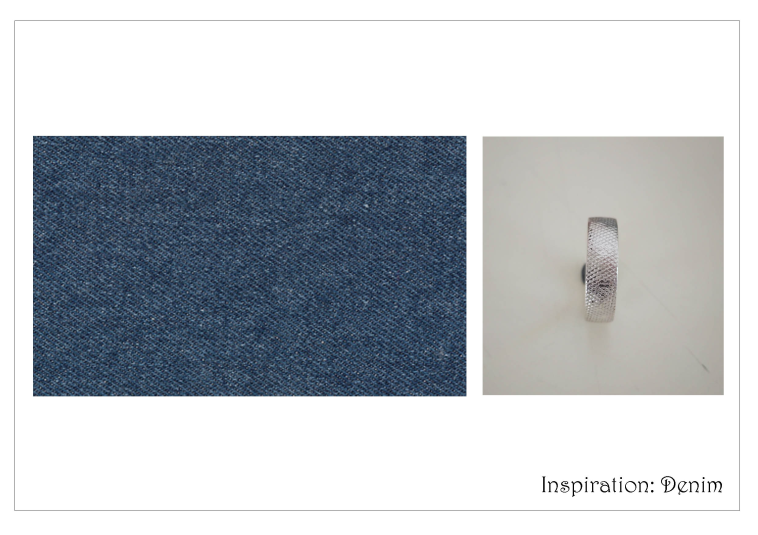
Run your palm on your favorite pair of jeans and enjoy the feel of the weave against your skin. If the weave can transform ordinary cotton to a fabric that has perhaps surpassed all others in terms of universal appeal, imagine what it would do to Jewellery. The denim gold texture is unique in its diagonal criss-cross pattern that when polished accurately gives a contrast of lines of high polish and grooves of subtle shine. The artistry that goes into achieving this texture involves meticulously knurling the Gold surface so the weave stands out. The texture is in itself so unique and so striking that it is best worn as it is, but there is nothing to stop you from experimenting with bold denim motifs around muted semi-precious stones.
Diamond Dust
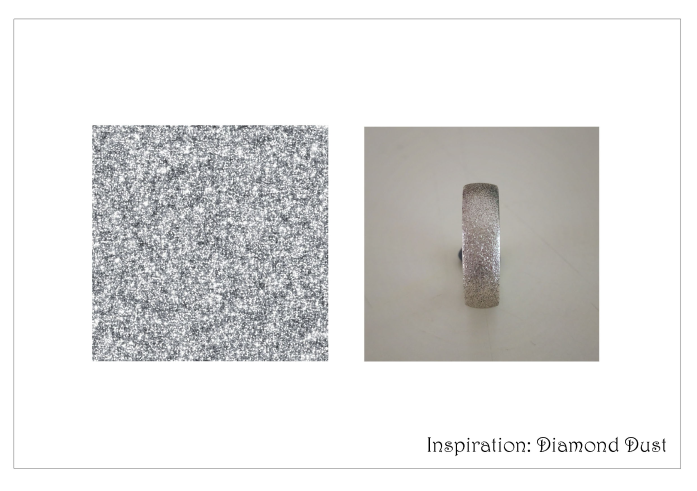
Like the surface of sandpaper, this gold texture has a grainy feel and look, much like a sprinkling of glitter. The spotted knurling tool, when running along the surface of Gold, rapidly indents minute specks and as the surface is polished, the grains become glossy and shiny, while the surfaces between the grains remain muted giving the impression of fine diamond dust casually scattered along the crust. The glittery effect is a perfect receptacle for both gemstones with high refraction and those with higher opacity. Nevertheless, this texture can be celebrated for its individualistic look without any gemstone to steal its glory.
Rutiles
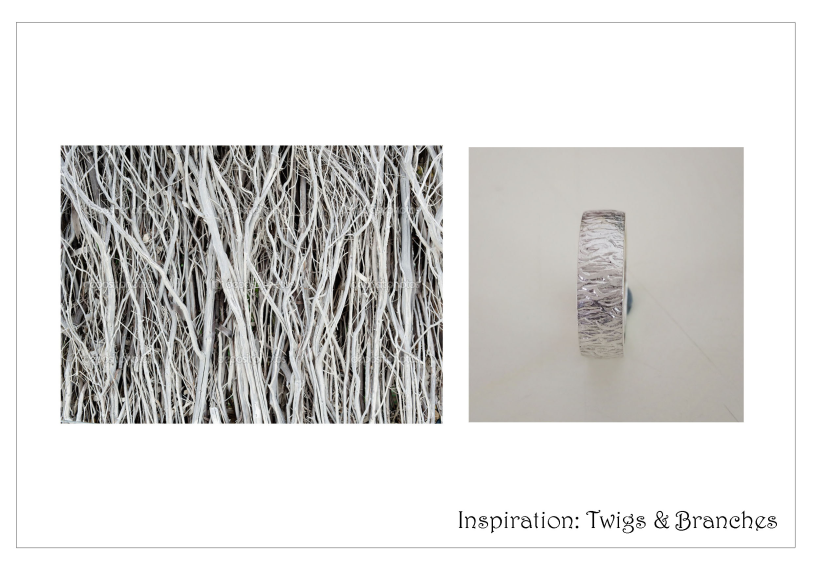
This rutilated Gold texture is inspired by nature and the dense growth of twigs and branches in a forest of marshland. The unevenness of the reticulation lends itself to endless possibilities and ideas. This texture can be applied both vertically and horizontally along the surface of Gold and requires an artist’s skilled hands to carefully etch the lines to create the stunning effect. Due to the highlighted contrasting design, the texture works wonderfully both with and without Gemstones. But since the texture is itself elaborate and striking, non-faceted stones and cabochons would work best to create the perfect look!
Thermocol
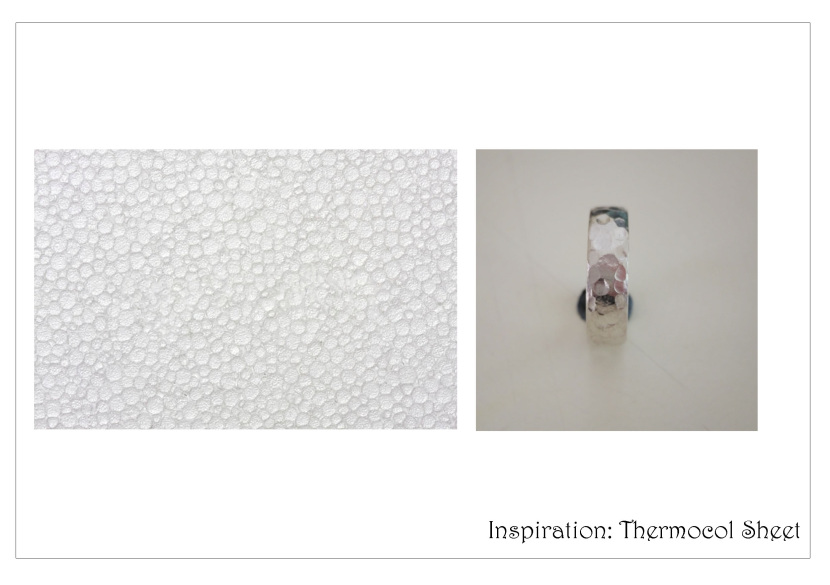
Call it the thermocol look, or the honeycomb effect to be more romantic. This gold texture is achieved by beating on the surface of gold with a blunt tool to give closely placed dents. As the dents are fairly large in size, polishing results in uniform luster, but what creates the stunning effect is the fact that the dents catch and reflect light in varying degrees creating an interesting play of luster. Ideal on large surfaces so the effect is clearly visible, this pattern works beautifully with bold minimalist jewelry.
Bark
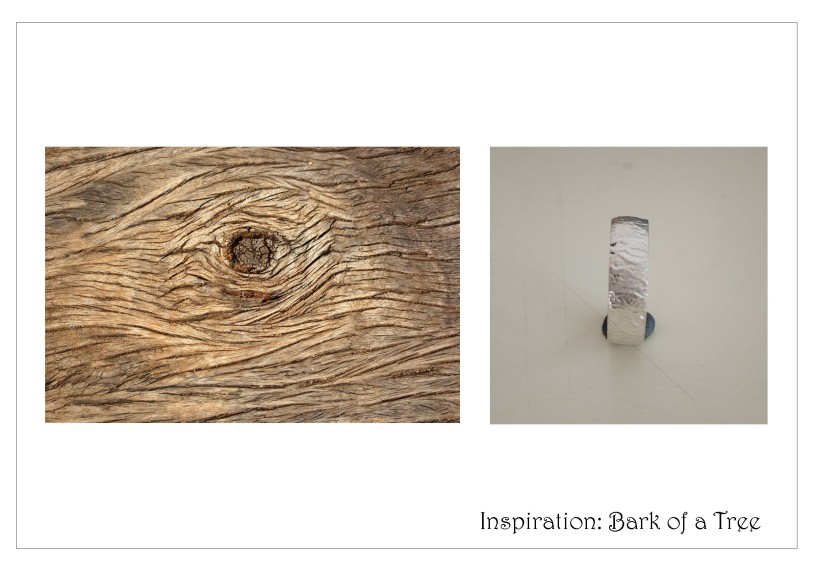
The weathered look of the bark of a tree is sensational to behold and when recreated on the surface of Gold, it becomes even more appealing. The undulating lines are created by hand with etching tools and they scatter light with varying degrees to create an interesting dynamic of luster and shine. The subtlety of this gold texture lends itself beautifully to both studded and plain gold jewellery, particularly when applied on a large surface.
Creased Fabric
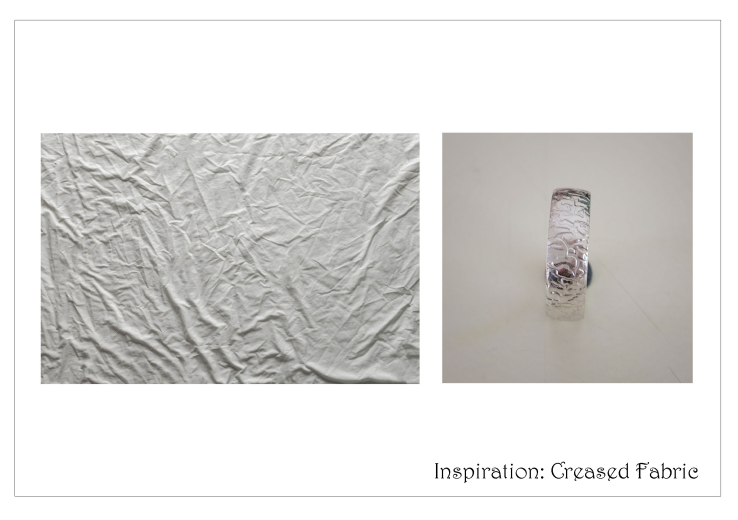
The fabric or leather pattern is similar to the bark texture in its play of wavy lines across the surface. But unlike the unidirectional lines in the texture of bark, the creased fabric look has wrinkles in every course, giving the impression of crumpled paper. Once again etched by hand, this surface is the goldsmith’s playground because it gives him the liberty to choose the lines to etch, their direction, their size, and their shape. The beauty of this gold texture is that it looks equally beautiful in both high polished finish and matte finish and is best displayed in ornaments with large Gold surfaces.
Glossy Basalt
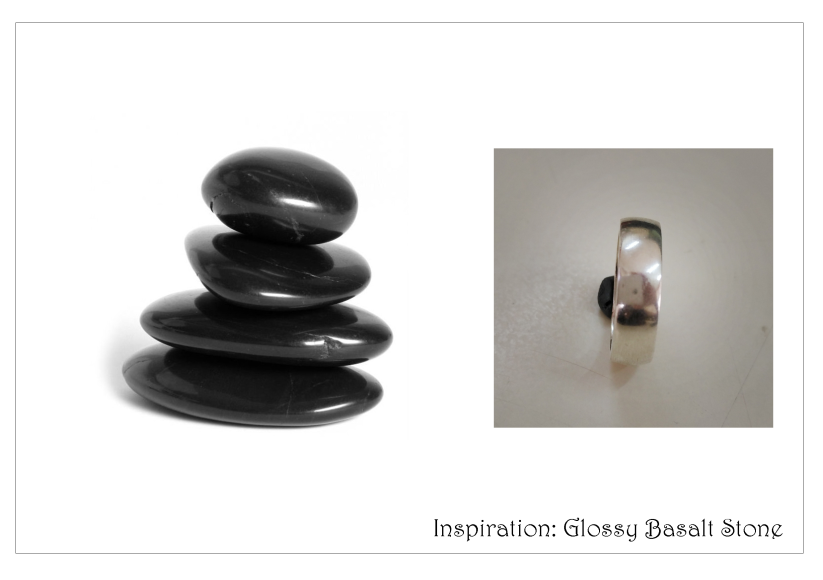 We have saved the most popular gold texture for the end, the glossy smooth surface reminiscent of Basalt rock. This is achieved by repeatedly buffing and polishing the surface of gold till it becomes almost mirror like in smoothness and shine. The shine can be further enhanced with a coat of polish, or it can be left as is for a subtle effect. The glossy look is universal in appeal and use, with or without gemstones, for just a frame or along a large surface.
We have saved the most popular gold texture for the end, the glossy smooth surface reminiscent of Basalt rock. This is achieved by repeatedly buffing and polishing the surface of gold till it becomes almost mirror like in smoothness and shine. The shine can be further enhanced with a coat of polish, or it can be left as is for a subtle effect. The glossy look is universal in appeal and use, with or without gemstones, for just a frame or along a large surface.
The softness of Gold lends itself to myriad possibilities. So the next time you walk into Gehna to customize your jewellery, do discuss the various gold textures that will make your ornament even more gorgeous than your concept is. If you find any other texture that you may want to replicate, do bring us the idea and watch us work our magic with it!!
View Our Jewellery Collection: Stacking Rings | Necklaces | Jhumki | Pendants | Nosepins | Earrings
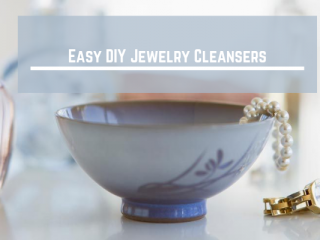
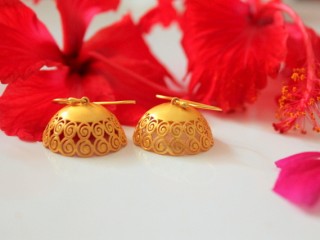
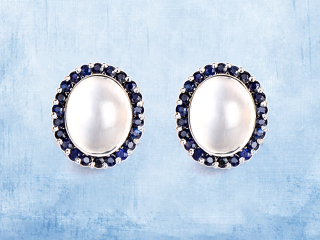
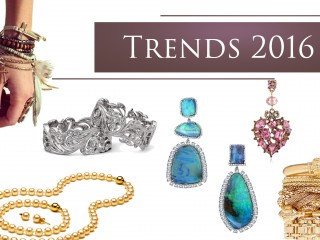
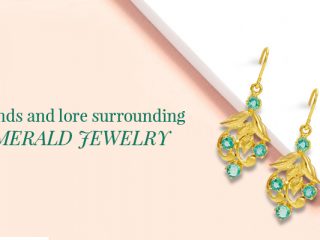

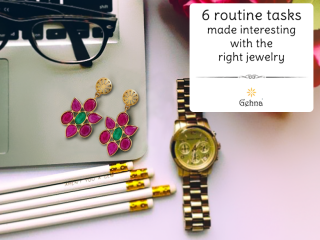

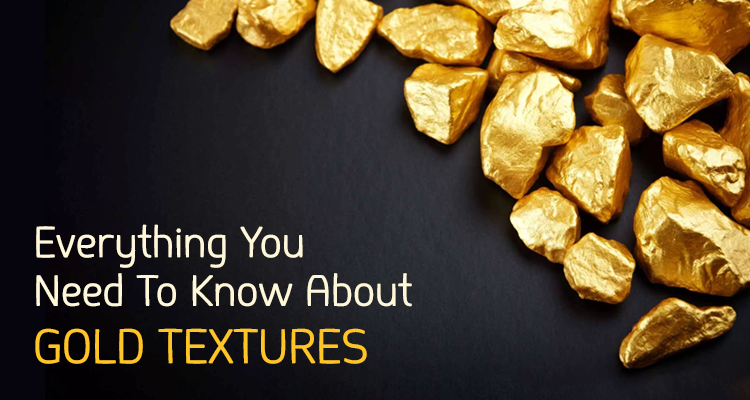

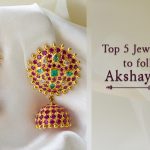
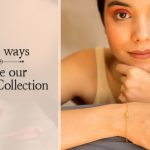
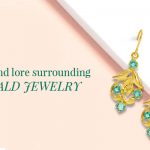
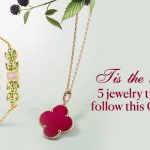
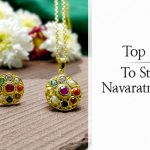
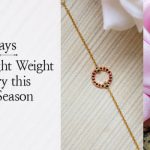
Tia singh
Wow, texture looking so nice, specially Bark one…means gold jewellery can be also, its design superb means you can say its new thing for marriages also, when i was searching latest gold jewellery meet with infibeam and your article, it looks interesting…
Nihara
Wonderful information..great reading..keep writing more
Sunith Samdaria
Thank you. Glad you enjoyed reading the blog.
Seth
Hi there! Such a great write-up, thanks!
Tom
Hi there! Such a nice short article, thanks!